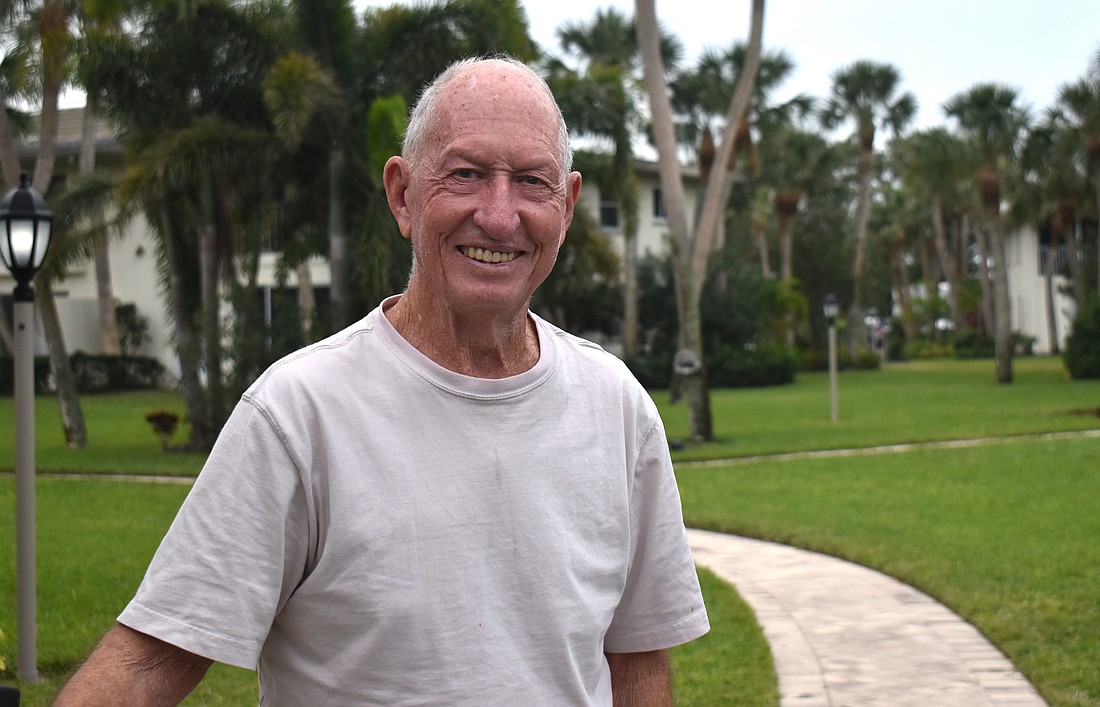- November 25, 2024
-
-
Loading

Loading

Warren Roberts had a way of seeing the potential in people.
While his wife, Anne, was prepared to be a stay-at-home mother for their four children, Roberts insisted she was too smart.
His son James can recount story after story of his father’s students saying they were so close to dropping out or felt they were wandering aimlessly until they landed in one of Roberts’ classes.
“He changed their lives, and he changed their lives by helping them develop critical skills and helping to give them the ability to organize their thoughts,” James Roberts said.
Roberts died May 8, on his 85th birthday, when he was hit by two cars on Gulf of Mexico Drive.
“I think [he had] enthusiasm and making things come alive,” Anne Roberts said. “People would say to me, ‘I’ve walked down this street all my life, and I never noticed things until Warren pointed them out to me.’”
Perhaps best known locally as an avid beach walker each morning, Roberts led a distinguished career as a professor at the University at Albany, State University of New York, before retiring to Longboat Key.
Roberts began his teaching career in 1963. He was a professor there until his retirement in 2013.
“He was very supportive,” William Hedberg, senior vice provost and associate vice president for academic affairs at the University at Albany, SUNY, said. “I think he was well-known on the campus for being interested in what other faculty were doing. He was very supportive of their efforts. He offered encouragement, particularly to the junior faculty to try and cheer them on and show an interest in their work.”
In 1984, Roberts was promoted as one of the first distinguished teaching professors, one of the highest ranks given at SUNY, Hedberg said. Hedberg called him a legend.
“Some professors can be a bit tedious in their lectures,” Michael Huber, a former student of Roberts’ said in an email. “Warren possessed an uncanny ability to make absolutely stunning connections between history and art and current events and poetry and architecture. My classmates often talked about how special he was. I’ve never met anyone like him.”
Roberts’ neighbor, Alan Ackerman, said the two often got together to talk about history. One time, Ackerman’s men’s breakfast club at Longboat Island Chapel needed a speaker, so he approached Roberts, and he agreed. He just wanted to know what topic would be interesting to the group.
He decided to speak about Napoleon. He talked for 20 minutes, which was the normal time for a speaker, but when he said he was finished, the group encouraged him to continue. Ackerman said everyone was glued to their chairs listening.
“He could talk any phase of anything that has happened since the world began keeping records,” Ackerman said.
When Roberts wasn’t writing or reading, he was often found outdoors, as he had been in Albany, when he would walk around campus, play basketball with students or tennis with colleagues.
After his retirement, Roberts didn’t slow down, despite a bike crash in 2013 and a stroke in 2016. Roberts was the author of six books and was working on another about the history of Vienna and its music. He continued his daily exercise but in different ways.
For four years, Roberts would play fetch with Grace “Sasha” Haskard’s yellow Labrador retriever, Stardog, daily at 3 p.m.
“He had a brilliant mind, and he was aware of the changes needed in the world,” Haskard said.
He started each day with a walk on the beach and became a fixture for fellow beach walkers. Whether they had known Roberts for years, like Naima White, or just a few months, like Roey Gangloff, Roberts’ presence on the beach was a high point for many.
“I’m sure he was just the light of a lot of people’s lives,” Gangloff said.
Whether it was raining and cloudy or blue skies with a shining sun, Roberts always told fellow beach walkers it was “a beautiful day for a walk.”
“He was the anchor,” White said. “Steady as the tide. [Is the tide] going to be high or low? Warren will be there.”
Roberts is survived by his wife, Anne; four children Carissa, James, Thomas and Peter; and six grandchildren.
In lieu of flowers, donations can be sent to Southeastern Guide Dogs at guidedogs.org/donate or the Silverstein Institute by calling 888-418-9200.